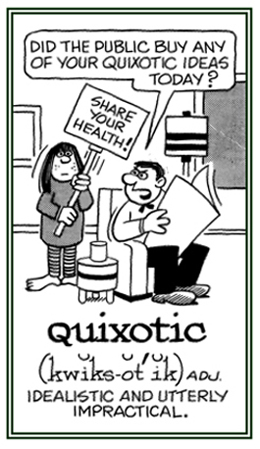List 3
Abound
Pronunciation: uh-BOUND
Meaning: To exist in large numbers or amounts.
Think of “A + Boundless” — something so plentiful that it feels boundless in quantity.
Or picture a place “Abounding with Abundance” — overflowing with a large amount of something.
Sentence:
In spring, flowers abound in the garden, creating a beautiful and colorful display.
Amorphous
Pronunciation: uh-MOR-fuhs
Meaning: Lacking a clear shape or form.
Think of “A + Morph” — something that can constantly morph or change, having no fixed shape.
Or imagine “Amorphous Cloud” — a cloud without a defined shape, just like an amorphous form.
Sentence:
The painting was amorphous, with colors flowing freely without distinct shapes or lines.
Austere
Pronunciation: aw-STEER
Meaning: Strict in manner; simple or lacking in comforts and luxuries.
Think of “Severe and Steer” — someone with a serious, no-nonsense style, steering away from luxury.
Or imagine a “Bare-Austerity” — a life with only the bare essentials, reflecting an austere lifestyle.
Sentence:
The monk lived an austere life, with minimal possessions and no comforts.
Belie
Pronunciation: bih-LY
Meaning: To give a false impression of something; to contradict or misrepresent.
Think of “Be + Lie” — something that lies about its true nature, creating a misleading impression.
Or imagine a “Beautiful Lie” — something that looks good on the surface but belies its real nature.
Sentence:
Her calm demeanor belied the anxiety she was feeling inside.

Capricious
Pronunciation: kuh-PRISH-us
Meaning: Prone to sudden changes in mood or behavior; unpredictable.
Think of “Cap + Riches” — someone who changes their mind as quickly as they might change hats or styles.
Or imagine “Capricious Weather” — unpredictable weather that shifts from sunny to rainy without warning.
Sentence:
Her capricious nature made it hard for her friends to predict her mood on any given day.

Cerebral
Pronunciation: suh-REE-bruhl
Meaning: Relating to the brain or intellect; intellectual rather than emotional or physical.
Think of “Cerebrum” — the brain’s intellectual center, so cerebral relates to thinking and intellect.
Or imagine someone with a “Cerebral Approach” — using logic and intellect over emotions.
Sentence:
The book was quite cerebral, appealing to readers interested in philosophical ideas.
Congenial
Pronunciation: kun-JEE-nee-uhl
Meaning: Pleasant or agreeable, often because it suits one’s personal tastes or preferences.
Think of “Genial Company” — a warm, friendly environment that feels congenial.
Or picture “Connect + Genial” — a place or person with whom you can connect and feel comfortable.
Sentence:
She found the seaside town congenial, as it matched her relaxed and friendly personality.

Conspicuous
Pronunciation: kuhn-SPIK-yoo-uhs
Meaning: Easily visible or attracting notice.
Think of “Con + Spiky” — like a spiky hairstyle that’s conspicuous and noticeable.
Or picture “Con + Spectacles” — something that stands out like wearing bright, unusual spectacles.
Sentence:
His bright red jacket was conspicuous in the crowd.

Cursory
Pronunciation: KUR-suh-ree
Meaning: Done quickly with little attention to detail.
Think of “Curse + Sorry” — something done hastily, leaving mistakes that make you want to apologize.
Or imagine a “Cur + Sorry” glance — a quick, careless look that curses over details.
Sentence:
She gave the document a cursory review, missing several important errors.
Daunting
Pronunciation: DAWN-ting
Meaning: Seeming difficult to deal with; intimidating.
Think of “Dawn + Ting” — a task so intimidating it sends a “ting” of fear at dawn.
Or picture a “Daunting Mountain” — a large mountain that looks difficult and frightening to climb.
Sentence:
The sheer scale of the project was daunting, but he tackled it with determination.

Deify
Pronunciation: DEE-uh-fy
Meaning: To worship or regard someone as a god.
Think of “Deity-fy” — turning someone into a deity or god-like figure.
Or picture someone “Deifying” their idol, treating them with reverence.
Sentence:
Some fans practically deify their favorite celebrities, idolizing them in every way.
Didactic
Pronunciation: dye-DAK-tik
Meaning: Intended to teach, often in a way that feels overly instructive or patronizing.
Think of “Didactic = Dictate” — like someone dictating lessons, often coming across as patronizing.
Or imagine a “Direct Lesson” — someone being very clear, possibly overbearing, in teaching.
Sentence:
The book’s didactic tone made it seem more like a lecture than an enjoyable read.
Disseminate
Pronunciation: dih-SEM-uh-nayt
Meaning: To spread or distribute widely.
Think of “Seeds Dispersing” — like planting seeds, information disseminates and spreads.
Or picture a “Disseminating Message” — a message that spreads widely across people.
Sentence:
The organization worked hard to disseminate information on healthy practices.
Feasible
Pronunciation: FEE-zuh-buhl
Meaning: Possible and practical to accomplish easily or conveniently.
Think of “Feasible = Easy + Doable” — something achievable and practical.
Or imagine a “Feasible Plan” — a plan that is well within reach to complete.
Sentence:
Building a small garden in her backyard seemed feasible with the resources she had.
Flout
Pronunciation: FLOWT
Meaning: To openly disregard or mock rules or conventions.
Think of “Flout = Flute” — someone blowing a flute in disregard of the rules.
Or imagine “Flaunt + Out” — someone flaunting their disregard for rules openly.
Sentence:
He would often flout the school rules, openly challenging the teachers’ authority.
Homogeneous
Pronunciation: hoh-muh-JEE-nee-uhs
Meaning: Of the same kind; uniform in composition.
Think of “Home + Genius” — imagine a genius with identical ideas, making the group homogeneous.
Or picture “Homo + Genius” — everything being the same or identical.
Sentence:
The neighborhood was culturally homogeneous, with most residents sharing similar traditions.
Humdrum
Pronunciation: HUM-drum
Meaning: Lacking excitement; monotonous or boring.
Think of “Hum and Drum” — a dull, repetitive sound like a drum beating over and over.
Or imagine a “Humdrum Day” — a day so boring that it makes you feel like doing nothing.
Sentence:
Her job had become humdrum, with every day feeling the same as the last.
Insipid
Pronunciation: in-SIP-id
Meaning: Lacking flavor or interest; dull.
Think of “In-Sip” — something you sip but don’t enjoy because it’s insipid.
Or picture an “Insipid Soup” — bland and flavorless, like a boring conversation.
Sentence:
The movie was so insipid that he could barely stay awake.
Loquacious
Pronunciation: loh-KWAY-shuhs
Meaning: Very talkative.
Think of “Low + Quacks” — like a duck quacking non-stop, someone being overly talkative.
Or picture “Loquacious Larry” — someone who just can’t stop talking.
Sentence:
She was loquacious, always filling every silence with conversation.
Misanthropic
Pronunciation: mis-an-THROP-ik
Meaning: Disliking or showing dislike toward other people.
Think of “Miss-Anthro-People” — someone who misses liking people, feeling anti-social.
Or picture “Mis + Anthropology” — someone who dislikes humanity or people.
Sentence:
The old man had a misanthropic attitude, avoiding social gatherings altogether.
Misnomer
Pronunciation: mis-NOH-mur
Meaning: An incorrect or inaccurate name.
Think of “Mis + Name” — a name that’s wrong or doesn’t fit, like a misnomer.
Or picture “Misnomer Mistake” — calling something by an incorrect name.
Sentence:
Calling that small dog “Bear” was a misnomer, as he was gentle and tiny.
Negligent
Pronunciation: NEG-li-juhnt
Meaning: Failing to take proper care of something.
Think of “Neglect + Gent” — a careless gentleman who is always negligent.
Or imagine “Neglect and Ignore” — failing to pay attention or take care of something important.
Sentence:
The staff was negligent in handling the customer’s complaint, leading to further issues.
Obsequious
Pronunciation: uhb-SEE-kwee-uhs
Meaning: Overly submissive or obedient; fawning.
Think of “Obey-Quious” — someone who’s too eager to obey or please.
Or imagine “Obsessive Obedience” — a person who is obsequious, excessively eager to serve.
Sentence:
The assistant’s obsequious behavior annoyed his colleagues.

Placate
Pronunciation: PLAY-kayt
Meaning: To make someone less angry or hostile.
Think of “Place + At Ease” — to placate someone is to make them feel at ease.
Or imagine “Pacify and Calm” — actions taken to placate and soothe someone.
Sentence:
She tried to placate the angry customer by offering a discount.
Proclivity
Pronunciation: proh-KLIV-i-tee
Meaning: A tendency or inclination toward something, often habitual.
Think of “Pro-Activity” — a natural tendency to be inclined towards something.
Or picture “Proclivity for Productivity” — a habit of being productive.
Sentence:
He had a proclivity for solving puzzles, which kept his mind sharp.
Puerile
Pronunciation: PYOO-er-ile
Meaning: Childishly silly or immature.
Think of “Pure + Child” — acting like a child with childlike or immature behavior.
Or picture “Pure Silly” — actions that are puerile or childishly foolish.
Sentence:
His puerile jokes didn’t amuse his colleagues.

Quixotic
Pronunciation: kwik-SOT-ik
Meaning: Extremely idealistic or unrealistic.
Think of “Quick + Exotic” — someone with wild, unrealistic ideas that sound like exotic dreams.
Or picture a “Quixotic Quest” — a journey with lofty and impractical goals.
Sentence:
His quixotic plans for a perfect world were inspiring, though unrealistic.

Spendthrift
Pronunciation: SPEND-thrift
Meaning: A person who spends money recklessly.
Think of “Spend + Thrift” — someone who spends without thinking about saving.
Or picture a “Spending Drift” — money drifting away from a person with every impulse.
Sentence:
As a spendthrift, she could never keep a savings account for long.
Taciturn
Pronunciation: TAS-uh-turn
Meaning: Reserved or saying little.
Think of “Tactical Turn” — someone who only speaks when it’s tactically important.
Or imagine “Tackling Silence” — a person who’s taciturn, preferring silence.
Sentence:
He was taciturn, rarely speaking unless he had something important to say.
Wary
Pronunciation: WAIR-ee
Meaning: Cautious or careful about potential dangers.
Think of “Aware + Weary” — someone who is careful, wary of risks.
Or picture “Wary and Watchful” — alert to avoid possible danger.
Sentence:
She remained wary of strangers after a previous bad experience.

Story Mode
In a small town, there was an aboundance of flowers, each one more beautiful than the last. However, the garden had an amorphous shape, making it difficult to navigate. The gardener was known for his austere approach, refusing to add any comforts like benches or fountains. One day, a visitor arrived who seemed to belie the garden’s charm with his critical remarks. He was capricious, changing his opinion from love to disdain in a matter of minutes. The gardener, being quite cerebral, decided to engage him in a thoughtful conversation about the flowers.
As they talked, the visitor found the gardener’s demeanor quite congenial, and he began to appreciate the beauty around him. However, he couldn’t help but notice how conspicuous the weeds were among the flowers. The gardener explained that he often performed a cursory check on the plants but sometimes overlooked details due to their daunting number. He admitted that he would rather deify nature than spend too much time on maintenance.
Their conversation turned didactic, with the gardener sharing lessons about planting and care. He loved to disseminate knowledge about gardening to anyone willing to listen. The visitor realized that it was indeed feasible to cultivate such beauty with patience. However, he was surprised when the gardener began to flout traditional gardening rules, choosing instead to experiment with different techniques. This made their discussion even more interesting as they explored whether a garden could be homogeneous or if diversity was key.
Despite some humdrum days in the garden, each bloom brought excitement. The visitor found some of the plants quite insipid, lacking vibrant colors, but others were stunning. The gardener was known for being quite loquacious, sharing stories about each plant’s origin. Yet, he also had a misanthropic side; he preferred the company of plants over people at times. As they walked through the garden, they stumbled upon a sign that read “This is a misnomer; it’s not just a garden.” The visitor chuckled but noted how negligent he had been in appreciating such beauty. The gardener’s methods were sometimes seen as obsequious, always trying to please every visitor. Yet he knew how to placate those who criticized his work by showing them results.
As they concluded their tour, the visitor felt a growing proclivity for gardening himself, despite his initial skepticism. He realized that some ideas were rather puerile, but others were profound and worth pursuing. He left feeling somewhat quixotic, dreaming of creating his own garden one day. However, he also recognized that being a spendthrift with resources could lead to failure if not managed wisely.
Finally, as they parted ways, he admired how the gardener remained somewhat taciturn, speaking only when necessary but always with wisdom. The visitor left feeling more aware and wary of how easy it is to overlook beauty in everyday life.